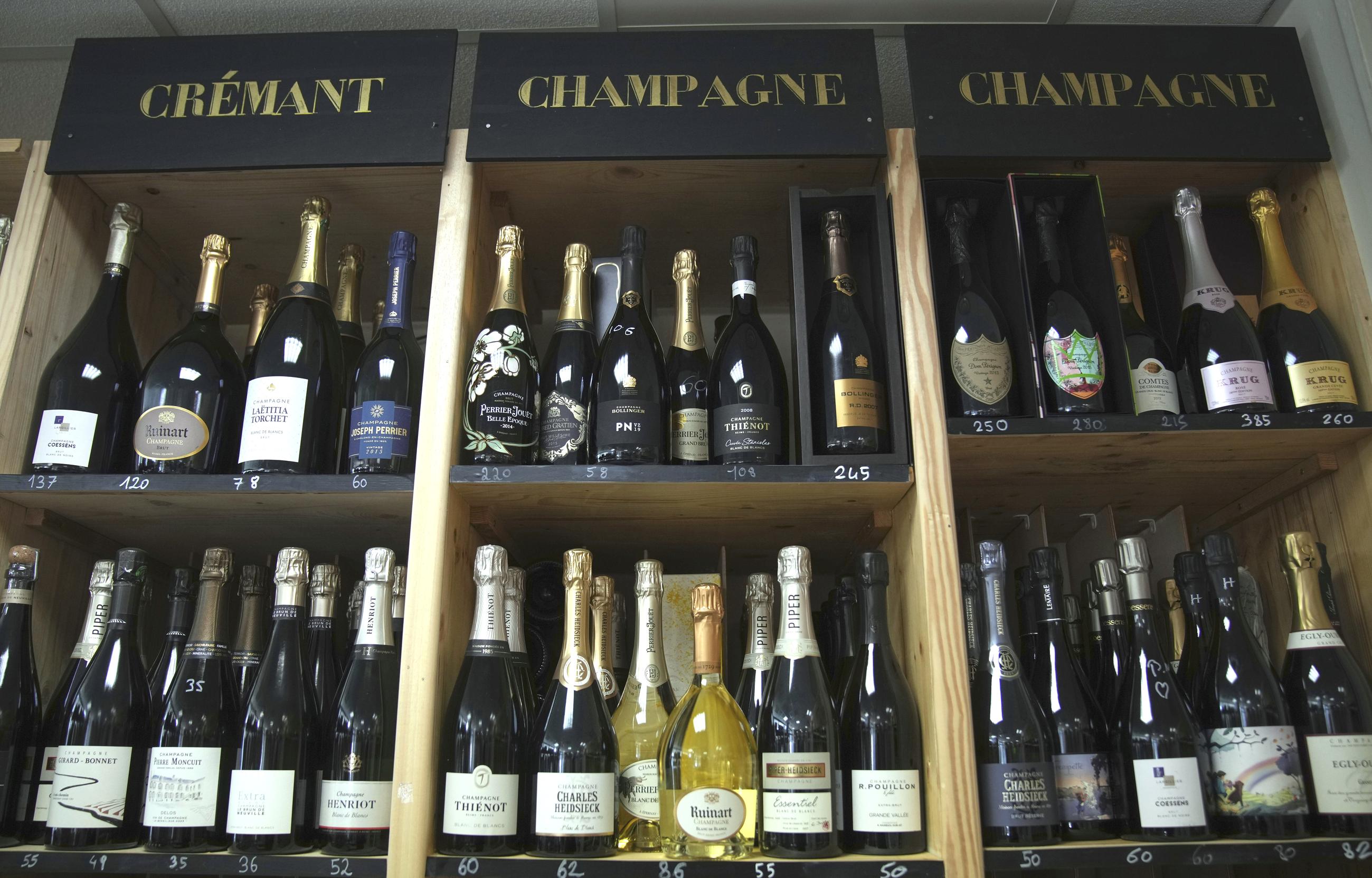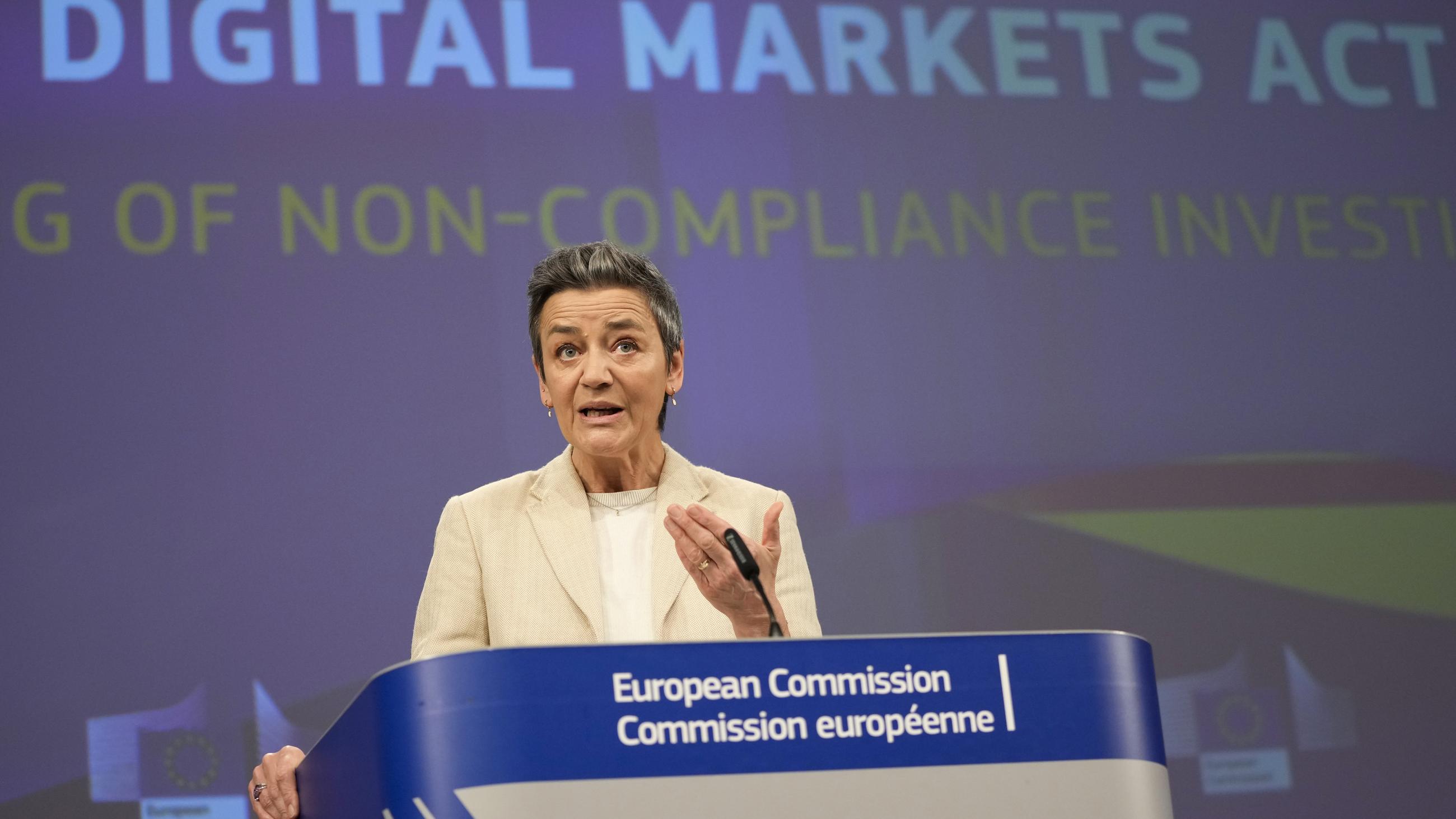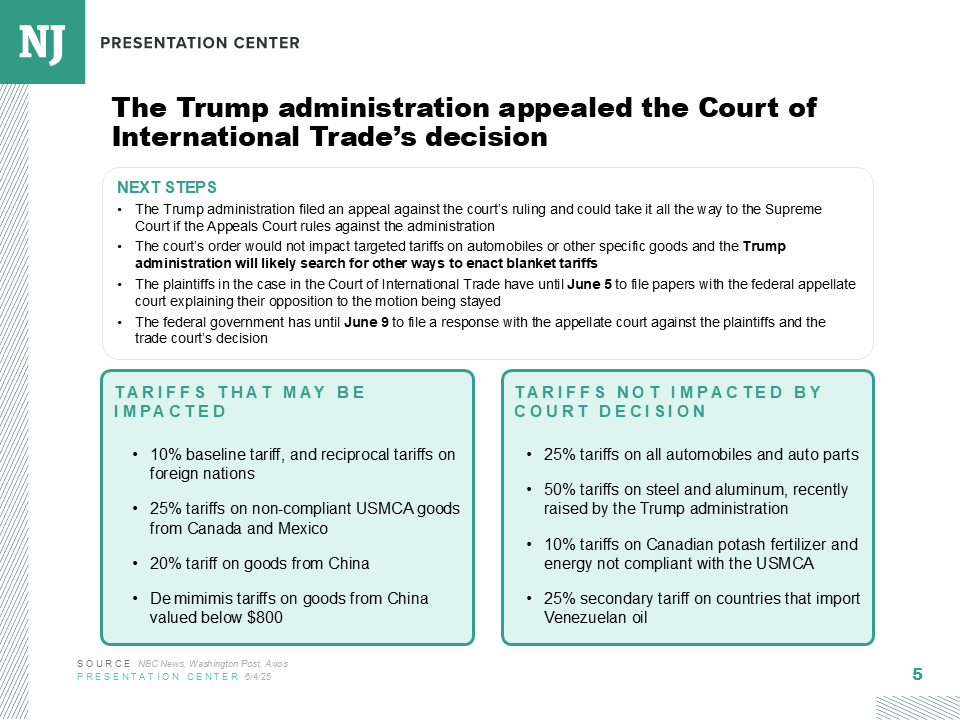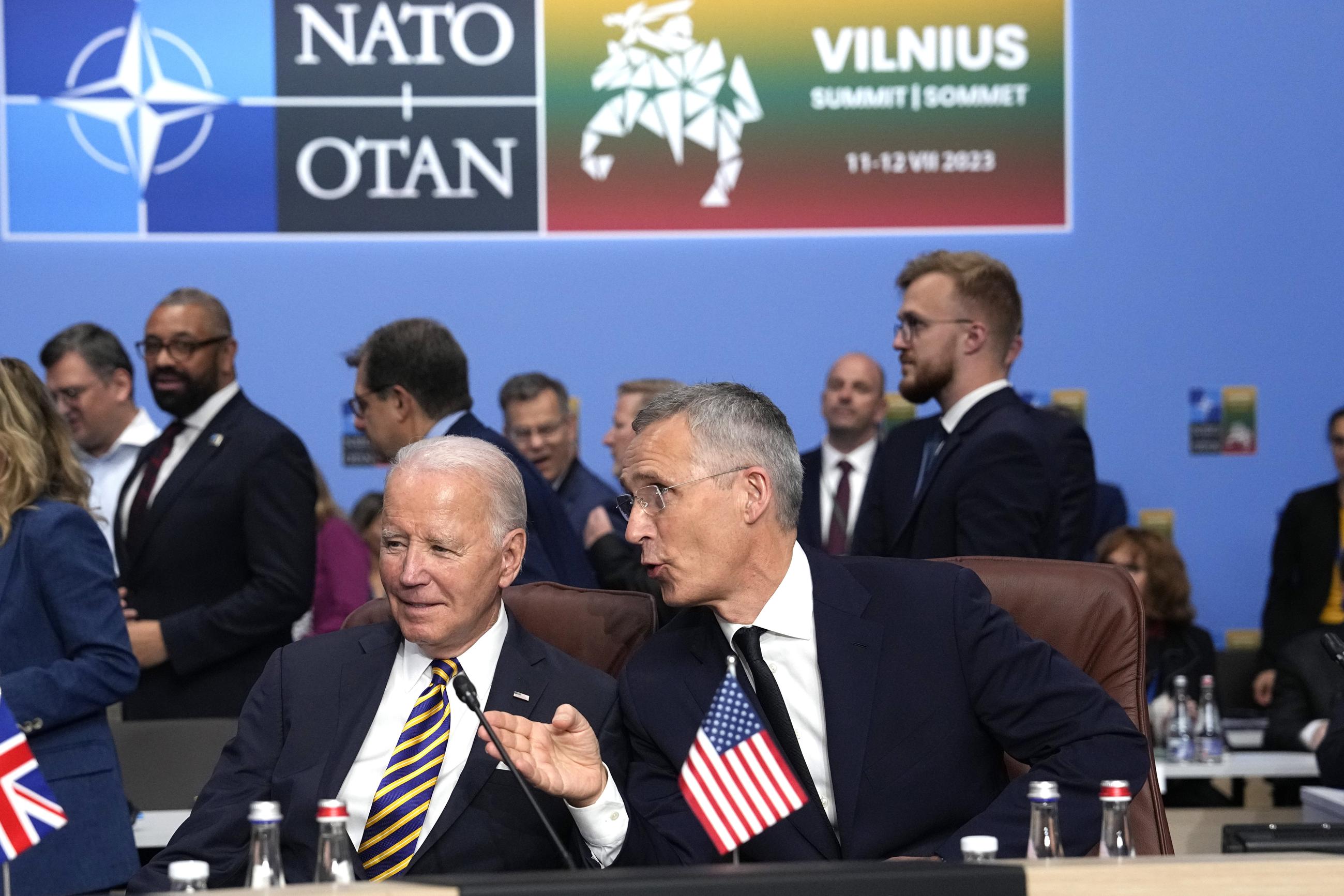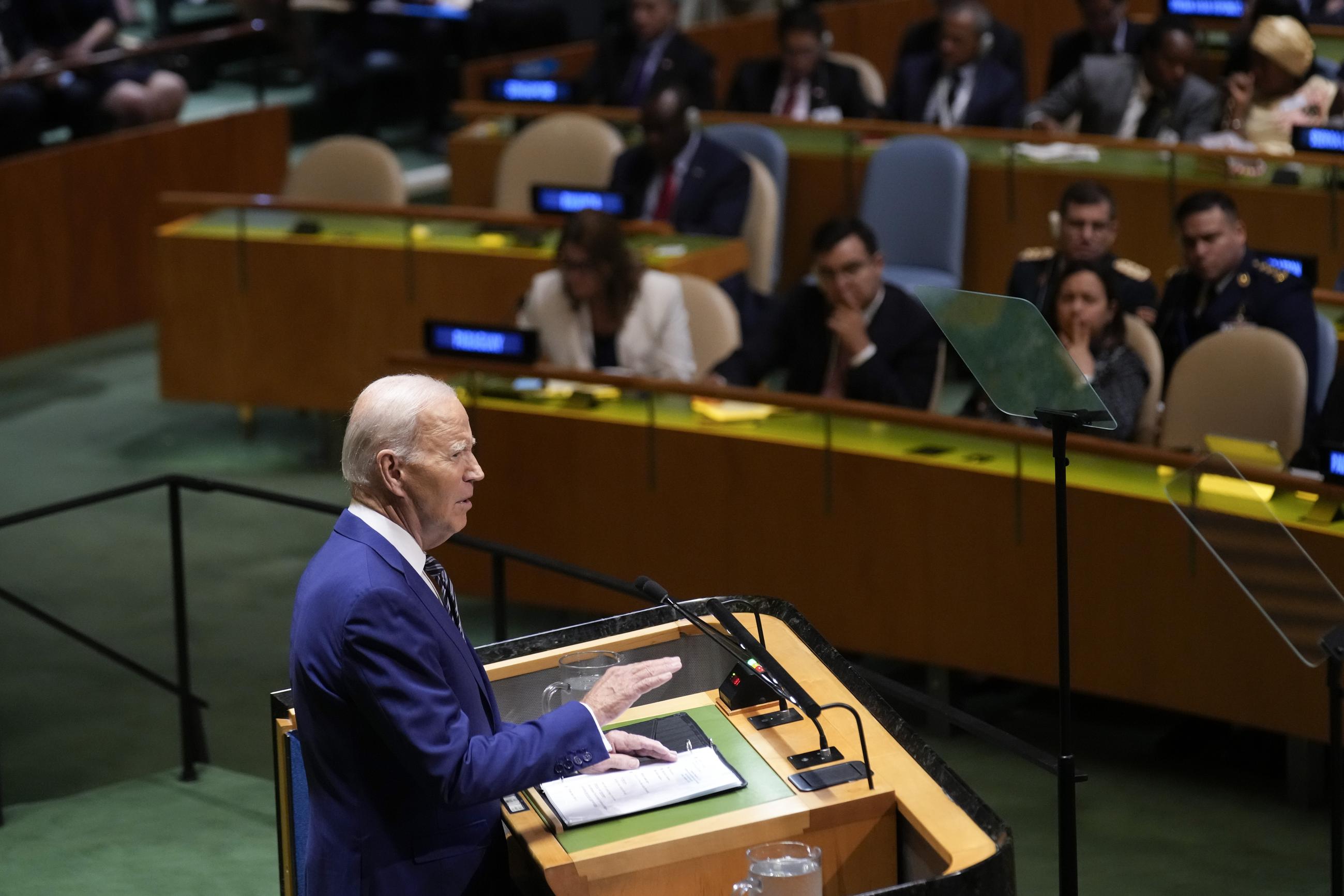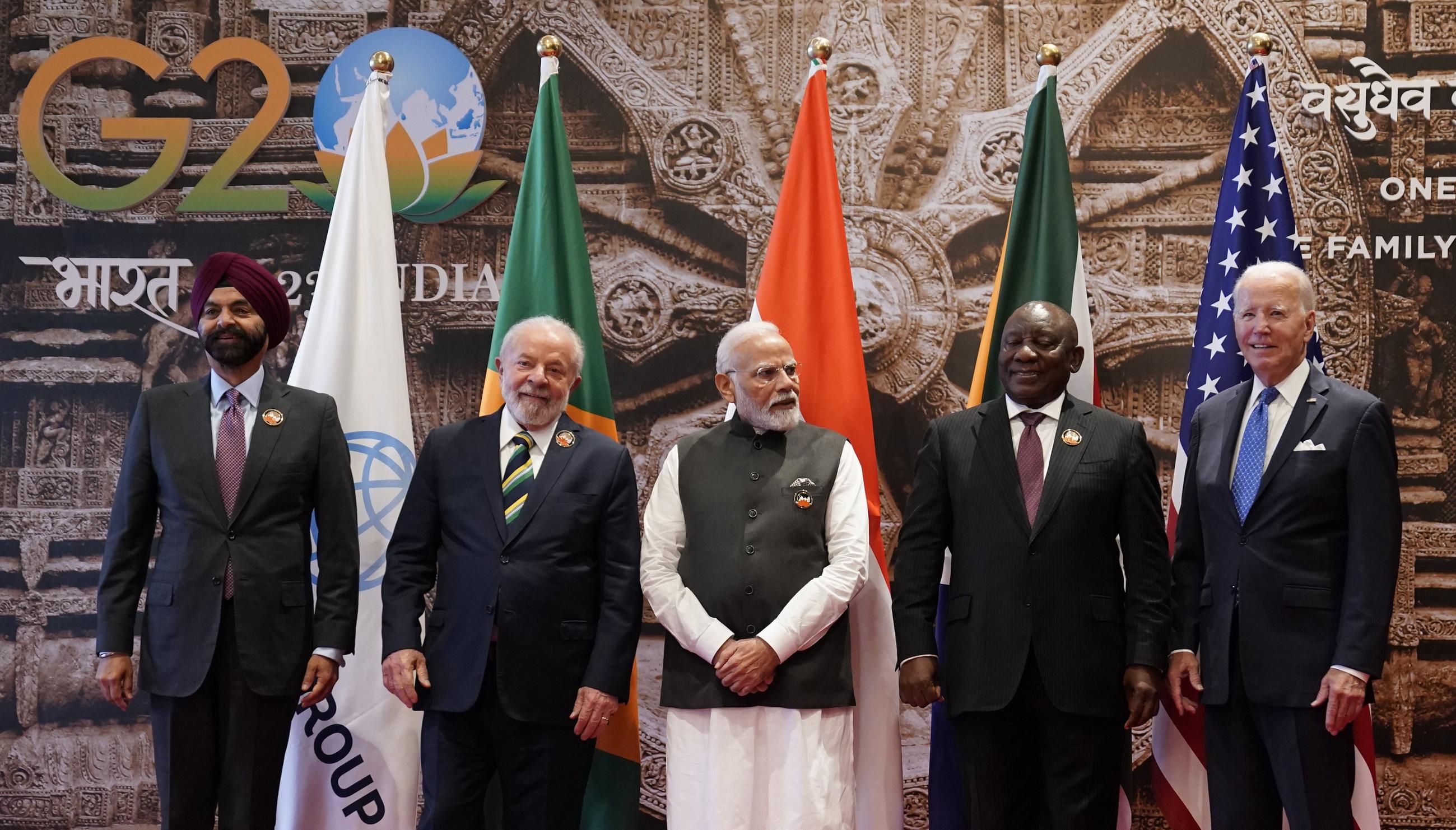European officials have a little over a month to hammer out the terms of a trade agreement with the mercurial Trump administration, or risk steep tariffs from the bloc’s largest trading partner.
The July 9 deadline for a U.S.-EU trade deal comes at a chaotic time for U.S. trade policy, as courts challenge the legality of Trump’s use of the International Economic Emergency Powers Act, a 1977 law that allows the president to bypass Congress during an economic emergency, to impose steep tariffs.
On May 28, the New York-based Court of International Trade ruled that Trump’s tariffs are illegal. However, the U.S. Court of Appeals for the Federal Circuit put a hold on that ruling just a day later, buying the administration more time to argue its case in court. Some European officials argue that Trump’s focus on tariffs is less about economics and more about generating revenue to address the growing U.S. deficit. They believe that the recent court cases have given them more leverage in the negotiating process and may have sped up the talks.
Now, Trump administration officials say the president will pursue other avenues to implement his trade agenda, no matter the outcome of the court cases. They’re also pressing international partners to submit the terms of ongoing negotiations as quickly as possible.
Trade talks are taking place in Paris on Wednesday. European officials, speaking on background in order to discuss the matter candidly, say they expect tariffs on European goods to remain in place once negotiations finish. The question is how high those tariffs will be, and what type of countermeasures Europe will implement. The European Union has prepared a wide-ranging list of U.S. products that Europe could hit with tariffs, including live pigeons.
European officials say they are open to discussing a wide range of issues, including how to reduce the trade deficit for goods. However, Europe isn’t willing to budge on consumer protections, such as its ban on pesticides.
The Trump team has previously pushed for Europe to relax its regulations on agricultural products and digital services to make it easier for U.S. companies to do business in Europe. In talks with European officials, the Trump administration has also criticized the EU’s regulations on single-use plastics that impact marine environments, its rules on deforestation, and its climate targets.
“From our point of view, the so-called baseline tariffs are not justified,” said Bernd Lange, the chairman of the European Parliament’s International Trade Committee. “There are a lot of possibilities for cooperation, but it’s crystal clear that our legislation is not on the negotiating table, not on consumer-protection standards, chemical legislation, or in the digital sphere, and also not regarding [the Value Added Tax].”
Lange noted that the U.S. also has legislation that Europe is “not so happy with,” such as the Jones Act and the Buy American Act, but that the U.S. has “the right to regulate.” He also pointed out that European apples and many dairy products are currently prohibited from entering the U.S. due to American regulations.
Brando Benifei, another member of the International Trade Committee, has traveled to Washington multiple times over the past several months to meet members of Congress and Commerce Department officials. His committee is responsible for ratifying any trade agreement that EU Commissioner for Trade Maroš Šefčovič reaches with the Trump administration. Benifei said that commission officials have kept him and his colleagues informed about ongoing talks with Trump administration officials including Commerce Secretary Howard Lutnick and U.S. Trade Representative Jamieson Greer, so that there won’t be any surprises.
“There is optimism that the negotiations can advance. Now, finally, it’s a bit structured," Benifei said. "When I went to Washington a month and a half ago, there was chaos. No one knew who really was negotiating, what were the points on the table. It was very chaotic. Now it’s different. The EU has clear interlocutors. Trade Representative Greer is working with our trade department. Mr. Lutnick is talking with our commissioner.”
Still, Benifei said there are several points of contention. One of the most significant is the Trump administration’s demands that the European Union loosen its laws and regulations, particularly those related to the use of pesticides and other chemicals in agricultural products. The administration has also urged the EU to relax its regulations on tech companies, including the Digital Services Act.
Some people familiar with the discussions say the administration’s stance has changed in recent months. Instead of insisting that Europe change its laws, the Trump team now hopes to strike political deals that would convince the Europeans to apply the laws lightly to U.S. tech companies.
“All of this is unacceptable for us. We’re not going to change our consumer rights or the protection from chemicals or the digital legislation and the way it’s applied,” Benifei said. “For us, that’s a no-go. We don’t ask the U.S. to change their legislation, so we don’t accept that they ask us to change ours.”
The EU and the U.S. currently have the world’s largest bilateral trade relationship, with approximately 20 percent of the EU's exports going to the U.S. While the EU exports more goods to the U.S. than it imports, European officials are quick to point out that the trade volume between the two entities would be roughly equal if services are taken into account.
Over the weekend, Trump announced plans to double the tariffs on all aluminum imports from 25 percent to 50 percent. EU officials said this announcement was regrettable and would make efforts to reach a deal more difficult. People with knowledge of the negotiations say that the European Union will face tariffs of around 10 percent once the trade talks are finalized.
Jörgen Warborn, a Swedish member of the European Parliament representing the center-right European People’s Party, said that tariffs on steel, aluminum, and car parts are also central to the negotiations.
“Of course the administration is also very focused on the trade deficit, and of course we can see if we can find solutions to reduce that deficit,” Warborn said. “One of the things that complicated a lot of trade negotiations is that both the U.S. and the EU are normally in the position that we’re the bigger party when we negotiate. In this case, there are two big parties.”
Anna Bryłka, a far-right member of the European Parliament’s International Trade Committee, is one of the European politicians who most closely aligns with the Trump administration on various policy questions. However, she argues that the administration’s decision to alter trade ties with the entire world simultaneously hasn’t been helpful for negotiations.
“I disagree with Trump’s decision to change trade relations with every country at the same time,” Bryłka told National Journal during a recent trip to Washington. “I think we are open to discussing, to negotiating, but on the other side we’re still working on countermeasures, and we have a very long list of products and goods that would be tariffed after the 9th of July.”

